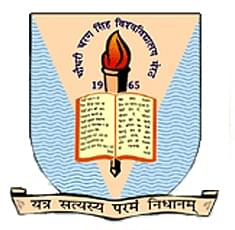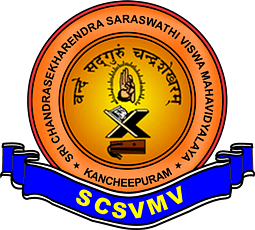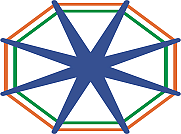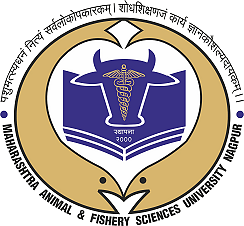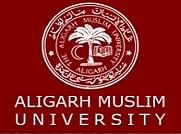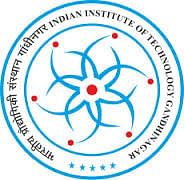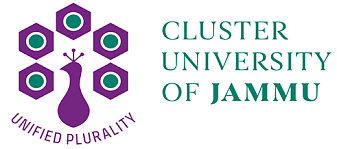Introduction about Ph. D tourism management
The top Ph.D. in Tourism Management college is an advanced academic program designed to
prepare scholars and professionals for leadership roles in the tourism
industry, academia, and research institutions. This doctoral-level program
focuses on providing in-depth knowledge, advanced research skills, and critical
insights into various aspects of tourism, including its economic, social,
environmental, and cultural dimensions.
Here's a structured
introduction:
1. Understanding
Tourism Management:
Tourism management
encompasses the planning, development, marketing, and operation of
tourism-related activities and destinations.
Ph.D. programs in
tourism management delve into the complexities of managing tourism businesses,
destinations, and experiences, with a focus on sustainability, innovation, and
stakeholder engagement.
2. Scope of Study:
The program covers
a wide range of topics related to tourism, including tourism policy and
planning, destination management, hospitality management, tourist behavior,
sustainable tourism development, and cultural heritage tourism.
Ph.D. candidates
have the opportunity to specialize in specific areas of interest and conduct
original research contributing to the advancement of knowledge in the field.
3. Research Focus
Areas:
Research in tourism
management may focus on various interdisciplinary themes, such as:
Sustainable
Tourism: Strategies for minimizing negative impacts and maximizing benefits of
tourism on host communities, economies, and environments.
Destination
Management: Planning, development, and marketing strategies for tourist
destinations to enhance competitiveness and attractiveness.
Tourism Experience
Design: Understanding tourist motivations, preferences, and behaviors to create
memorable and meaningful travel experiences.
Tourism Policy and
Governance: Analysis of policies, regulations, and governance structures
shaping the tourism industry at local, national, and international levels.
Tourism and
Technology: Integration of emerging technologies such as artificial
intelligence, virtual reality, and big data analytics in tourism management and
marketing.
4. Methodological
Approaches:
Ph.D. candidates
engage in advanced research methodologies, including quantitative and
qualitative techniques such as surveys, interviews, case studies, and
econometric modeling.
Interdisciplinary
approaches drawing from fields such as economics, sociology, geography,
environmental studies, and anthropology are often employed to address complex
tourism-related issues.
5. Career
Opportunities:
Graduates of Ph.D.
programs in tourism management pursue diverse career paths in academia,
research institutions, government agencies, non-profit organizations,
consulting firms, and the private sector.
They serve as
university professors, researchers, policy analysts, consultants, destination
managers, marketing executives, and sustainable tourism specialists,
contributing to the sustainable and responsible development of the tourism
industry globally.
In summary, a Ph.D.
in Tourism Management offers a rigorous academic and research-oriented program
for individuals passionate about advancing knowledge, promoting sustainability,
and driving innovation in the dynamic and multifaceted field of tourism.
What is admission process of Ph. D tourism
management ?
The admission process 2024 for Ph.D.inTourism Management
typically involves several steps, which may vary slightly depending on
the institution offering the program. Here's a general overview of the
admission process:
Research and
Identify Programs:
Prospective
candidates should research universities or institutions offering Ph.D. programs
in Tourism Management. They should review program details, faculty expertise,
research areas, and admission requirements.
Check Eligibility
Criteria:
Applicants need to
review the eligibility criteria specified by the institution offering the Ph.D.
in Tourism Management program.
Common eligibility
requirements may include:
Completion of a
master's degree in Tourism Management, Hospitality Management, Business
Administration, Economics, or a related field from a recognized institution.
Minimum qualifying
marks or grade point average in the master's degree program.
Proficiency in
English, especially if the program is offered in an English-speaking country.
Prepare Application
Materials:
Applicants
typically need to prepare a set of documents for the application, which may
include:
Completed
application form, either online or offline, as per the institution's
guidelines.
Academic
transcripts and certificates from previous educational institutions.
Curriculum vitae
(CV) or resume detailing academic qualifications, research experience,
publications, and relevant achievements.
Statement of
purpose (SOP) or research proposal outlining research interests, objectives,
methodology, and potential contributions to the field of Tourism Management.
Letters of
recommendation from academic or professional references who can attest to the
applicant's academic capabilities and research potential.
Entrance
Examination (if applicable):
Some institutions
may conduct an entrance examination to assess the candidate's subject
knowledge, research aptitude, and general aptitude.
The format and
syllabus of the entrance exam may vary, covering topics relevant to Tourism
Management, research methodology, and general aptitude.
Interview (if
applicable):
Shortlisted
candidates may be invited for an interview as part of the selection process.
The interview panel
typically includes faculty members from the Tourism Management department or
program, who assess the candidate's suitability for doctoral research, research
interests, academic background, and potential contributions to the field.
Submission of
Application:
Applicants need to
submit their completed application along with all required documents within the
specified deadline.
It's important to
adhere to the application deadlines and follow the instructions provided by the
institution.
Selection and
Admission:
After reviewing
applications, conducting entrance exams (if applicable), and interviewing
candidates, the institution selects suitable candidates for admission to the
Ph.D. program in Tourism Management.
Successful
candidates receive admission offers and are provided with instructions
regarding enrollment, registration, and commencement of the program.
Prospective
applicants should carefully review the admission guidelines and requirements
specified by the institution offering the Ph.D. in Tourism Management program
and ensure that they meet all requirements before applying. Additionally,
specific admission processes may vary between different institutions, so it's
advisable to check the detailed admission guidelines provided by each
institution.
What is eligibility for Ph. D tourism management ?
The eligibility criteria for Ph.D. program in Tourism Management may vary slightly between
institutions, but here are the typical requirements:
Educational
Qualifications:
Candidates must
hold a master's degree (M.A., M.Sc., M.B.A., or equivalent) in Tourism
Management, Hospitality Management, Business Administration, Economics,
Geography, Environmental Studies, or a closely related field from a recognized
university or institution.
The master's degree
should be obtained with a minimum qualifying marks or grade point average as
specified by the institution offering the Ph.D. program.
Language
Proficiency:
Proficiency in
English is often required for Ph.D. studies, especially if the program is
offered in an English-speaking country.
Candidates may need
to demonstrate their English language proficiency through standardized tests
such as the TOEFL (Test of English as a Foreign Language) or IELTS
(International English Language Testing System), especially if they are
non-native English speakers.
Research Proposal:
Applicants may be
required to submit a detailed research proposal outlining their proposed area
of research, research questions, objectives, methodology, and potential
contributions to the field of Tourism Management.
The research
proposal helps the admission committee assess the candidate's research
aptitude, clarity of thought, and alignment of research interests with the
faculty's expertise.
Academic Records
and References:
Candidates are
usually required to submit their academic transcripts, certificates, and other
relevant documents as part of the application process.
Letters of
recommendation from academic or professional references who can attest to the
applicant's academic capabilities, research potential, and suitability for
doctoral studies may also be required.
Entrance
Examination (if applicable):
Some institutions
may conduct an entrance examination to assess the candidate's subject
knowledge, research aptitude, and general aptitude.
The format,
syllabus, and scoring criteria of the entrance exam may vary between
institutions.
Interview (if
applicable):
Shortlisted
candidates may be called for an interview as part of the selection process.
The interview panel
typically includes faculty members from the Tourism Management department or
program, who assess the candidate's suitability for doctoral research, research
interests, academic background, and potential contributions to the field.
Prospective
applicants should carefully review the eligibility criteria specified by the
institution offering the Ph.D. in Tourism Management program and ensure that
they meet all requirements before applying. Additionally, specific eligibility
criteria may vary between different institutions, so it's advisable to check
the detailed admission guidelines provided by each institution.
What is syllabus of Ph. D tourism management ?
The syllabus for Ph.D. in Tourism Management from best college may vary depending on the institution
offering the program, faculty expertise, and research focus areas. However,
here's a generalized overview of potential topics that may be covered in such a
program:
Foundation Courses:
Introduction to
Tourism Industry and Management
Theoretical
Foundations of Tourism Studies
Research Methods in
Tourism Management
Advanced
Quantitative and Qualitative Research Techniques
Core Concepts in
Tourism Management:
Tourism Policy and
Planning
Destination
Management and Marketing
Sustainable Tourism
Development
Tourism Economics
and Finance
Tourism Impact
Assessment and Management
Specialized Topics
in Tourism Management:
Hospitality
Management and Operations
Event Management
and Tourism Festivals
Cultural and
Heritage Tourism Management
Ecotourism and
Adventure Tourism
Medical and Health
Tourism Management
Interdisciplinary
Perspectives:
Environmental
Management and Sustainable Practices in Tourism
Socio-Cultural
Impacts of Tourism Development
Tourism and
Community Development
Tourism and
Globalization
Technology and
Innovation in Tourism Management
Advanced Seminars
and Workshops:
Seminar Series on
Current Trends and Issues in Tourism Management
Workshops on
Research Proposal Writing and Dissertation Development
Presentation Skills
and Academic Publishing
Research
Dissertation:
Proposal
Development: Identification of Research Problem, Objectives, and Hypotheses
Literature Review:
Critical Review of Existing Literature and Theoretical Framework
Data Collection:
Selection of Research Methods, Sampling, and Data Collection Techniques
Data Analysis:
Statistical Analysis, Qualitative Analysis, and Interpretation of Findings
Writing and Defence
of Dissertation: Writing the Dissertation Manuscript and Defending the Research
Findings in an Oral Defence
Elective Courses:
Elective courses
may vary depending on the institution and the research interests of the
student. Some potential elective topics include:
Tourism Marketing
Strategies
Destination
Branding and Image Management
Tourism and Climate
Change
Cross-Cultural
Management in Tourism
Crisis and Risk
Management in Tourism





